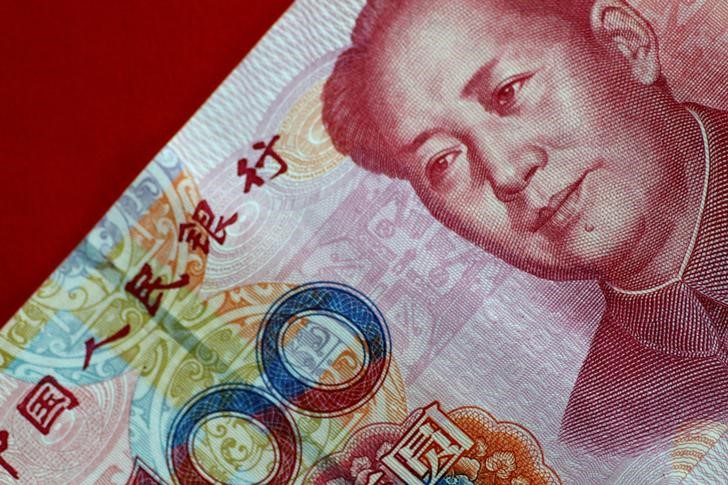Investing.com-- The Chinese yuan softened on Tuesday, with the main USDCNY dollar pair hitting a seven-month high after a weak midpoint fix by the People’s Bank, while concerns over a trade war with the West were also in play.
The yuan’s USDCNY pair, which gauges the number of yuan required to buy one dollar, rose as much as 0.1% to 7.2628- its highest level since mid-November.
Initial weakness in the yuan came after the People’s Bank of China set a weaker midpoint rate for the currency from Monday. The fix came amid mounting selling pressure against the yuan, as sentiment towards China soured.
The offshore yuan was much weaker, with the USDCNH pair rising past 7.28, also hitting a seven-month high.
While the PBOC has so far attempted to maintain some stability in the yuan against recent selling pressure, the currency’s latest bout of weakness suggest that the central bank may have no choice but to let the yuan depreciate in the near-term.
The PBOC has so far kept a tight hold on the yuan through the midpoint fix and market operations. It had reportedly intervened in currency markets earlier this year to brace the yuan against a bout of selling pressure.
But sentiment towards China soured substantially in recent weeks, especially as Beijing flagged the possibility of a trade war over import tariffs on Chinese electric vehicles by the U.S. and the European Union.
European tariffs were a key point of contention for China, given that the region is a major market for local EV makers. Chinese automakers were also seen calling for retaliatory tariffs on European vehicle imports.
Chinese and German ministers met this week to discuss the tariffs, which are set to be imposed in July.
Adding to concerns over a trade war, Canada was also seen potentially joining the U.S. and EU in imposing curbs on Chinese EVs, which are seen as providing stiff competition to local automakers.
